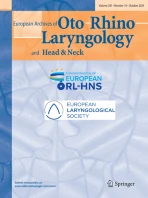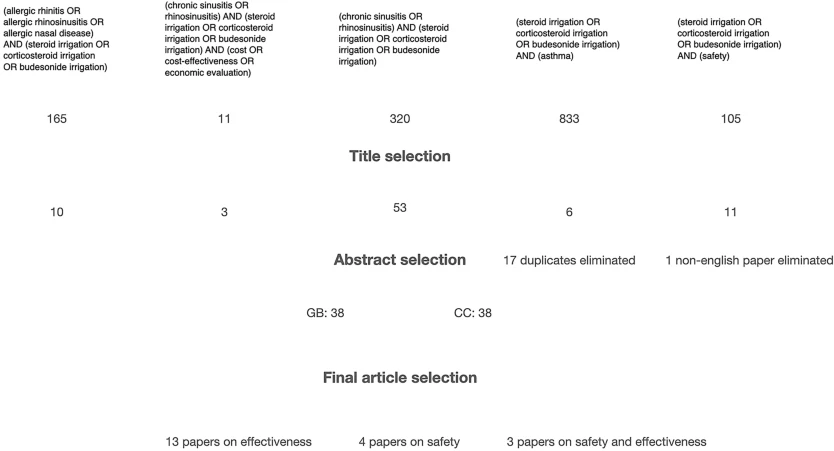Abstract
Purpose
The primary aim of this systematic review is to assess the efficacy, safety, and cost-effectiveness of high-volume steroid nasal irrigation (SNI) for treating chronic rhinosinusitis (CRS) and allergic rhinitis (AR).
Methods
A systematic review of literature from 2012 to 2024 was conducted using PubMed to identify relevant studies. The search focused on terms related to AR, CRS, and steroid nasal irrigation. Studies were screened for relevance and duplicates removed, resulting in 20 studies being included in the final analysis. These studies were categorized based on their focus on efficacy, safety, or both, and underwent a risk of bias assessment using Cochrane and ROBINS-I tools.Results
Of the 20 studies included, 13 examined the effectiveness of high-volume nasal steroid irrigations, 4 investigated safety, and 3 covered both. High-volume irrigations demonstrated superior efficacy in symptom improvement for CRS and AR compared to nasal sprays, particularly post-surgery. Budesonide was the most commonly used steroid. Safety evaluations indicated no significant hypothalamic–pituitary–adrenal axis suppression or increases in intraocular pressure, although minor adverse events were reported.
Conclusion
High-volume steroid nasal irrigations are more effective than standard nasal sprays for CRS and AR, particularly post-surgery, without significant safety concerns. However, no studies on cost-effectiveness were found, suggesting a need for further research in this area.


No comments:
Post a Comment